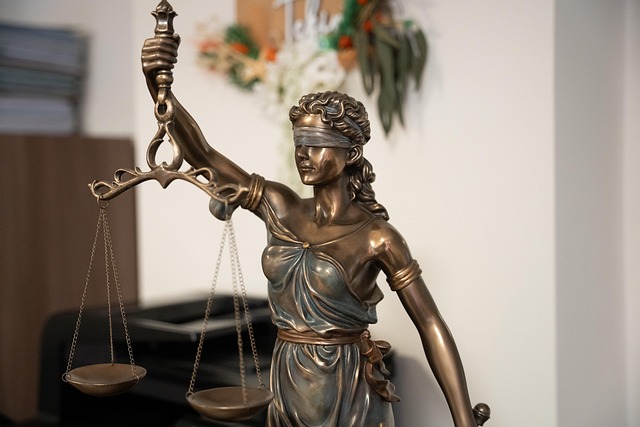Category: Littleton Colorado Juvenile Defense
Littleton Colorado Juvenile Defense: A Comprehensive Overview
Introduction
Welcome to an in-depth exploration of a critical aspect of the legal system—the unique approach to juvenile defense in Littleton, Colorado. This article aims to dissect and demystify this specialized field, shedding light on its practices, impact, and global reach. By delving into its various facets, we will uncover the significance of Littleton’s juvenile defense strategies, their influence on young lives, and their potential to shape a more compassionate and effective legal framework.
Understanding Littleton Colorado Juvenile Defense
Definition and Core Principles
Littleton Colorado Juvenile Defense refers to the collective efforts of legal professionals, social workers, and community advocates to provide specialized representation and support for minors (individuals under 18 years old) who are involved in the criminal justice system. It is a nuanced approach that recognizes the unique needs and vulnerabilities of young people, aiming to balance accountability with rehabilitation and their overall well-being.
The core components of this defense strategy include:
-
Legal Advocacy: Juvenile lawyers advocate for their clients’ rights within the legal system, ensuring fair treatment and challenging any violations of their constitutional privileges.
-
Psychosocial Assessment: Understanding the psychological and social factors influencing a minor’s behavior is crucial. Assessments help tailor defense strategies and may involve mental health professionals and social workers.
-
Rehabilitation and Diversion Programs: This aspect focuses on alternative solutions to traditional prosecution, such as counseling, community service, and educational programs, with the goal of preventing future criminal behavior.
-
Collaboration with Community Resources: Effective juvenile defense requires a network of support services, including schools, youth centers, and social welfare agencies, to ensure comprehensive care for the minor.
Historical Context
The concept of specialized juvenile justice systems emerged in response to the realization that adults and children have distinct needs and developmental stages. In the early 20th century, reform movements advocated for more humanitarian approaches to deal with juvenile delinquency. This led to the establishment of separate juvenile courts and the development of rehabilitation-focused policies.
In the United States, including Colorado, the juvenile defense system evolved over time, gaining momentum from civil rights movements and increasing awareness of youth-specific issues like trauma, substance abuse, and mental health challenges. Littleton’s approach to juvenile defense has been influenced by these national trends while adapting to the unique characteristics of its community.
Global Impact and Trends
International Influence
The principles of Littleton Colorado Juvenile Defense have resonated globally, leading to similar initiatives in various countries. Many nations are adopting more holistic approaches to address youth crime, recognizing the long-term benefits of early intervention and rehabilitation. This international influence can be attributed to several factors:
-
Humanitarian Concerns: Global human rights organizations advocate for fair treatment of children and adolescents, emphasizing the importance of rehabilitation over punishment.
-
Research and Knowledge Sharing: Legal scholars and practitioners share best practices, strategies, and case studies internationally, fostering a culture of continuous improvement in juvenile defense.
-
Regional Collaboration: Regional alliances promote knowledge exchange and coordinated efforts to address transboundary youth crime issues.
Key Global Trends
| Trend | Description |
|---|---|
| Early Intervention Programs | Many countries are focusing on prevention through early identification and support for at-risk youth, aiming to disrupt the path to delinquency. |
| Restorative Justice Practices | Restorative justice approaches, where victims and offenders engage in dialogue, gain popularity worldwide as a more healing alternative to traditional punishment. |
| Diversion Programs Expansion | There is a growing trend to expand diversion programs, offering young people non-judicial resolutions that keep them out of the criminal justice system. |
| Mental Health Integration | Increasing recognition of the intersection between juvenile delinquency and mental health issues leads to integrated services within the defense system. |
Economic Considerations
Market Dynamics
The juvenile defense sector operates within a complex economic landscape, influenced by local, state, and federal funding mechanisms. In Colorado, the market includes:
-
Public Defender Offices: Funded by tax dollars, these offices provide legal representation for indigent youth, ensuring access to justice.
-
Private Law Firms: Some families opt for private attorneys, contributing to the overall cost of juvenile defense services.
-
Non-Profit Organizations: Various charities and non-profits offer supplementary support, including legal aid and community-based programs.
Investment Patterns
Investing in effective juvenile defense strategies can have significant long-term economic benefits:
-
Reduced Recidivism Rates: Successful intervention programs can lower reoffending rates, reducing future criminal justice system costs.
-
Improved Community Safety: Well-resourced and specialized defense services contribute to safer communities by addressing the root causes of youth crime.
-
Cost-Effectiveness: Diversion and rehabilitation programs often prove more cost-effective than long-term incarceration, providing better value for public funds.
Technological Advancements
Impact on Juvenile Defense
Technology plays a transformative role in Littleton’s juvenile defense system:
-
Digital Case Management: Online case management systems streamline documentation, communication, and access to critical information, enhancing efficiency.
-
Telehealth Services: Video conferencing enables mental health sessions and counseling for remote or high-risk youth, improving access to care.
-
Data Analytics: Advanced analytics help identify trends, predict outcomes, and allocate resources more effectively, supporting data-driven decision-making.
Future Prospects
Emerging technologies like artificial intelligence (AI) and machine learning offer promising avenues:
-
Predictive Modeling: AI algorithms can assist in identifying youth at high risk of reoffending, allowing for early intervention and targeted support.
-
Personalized Learning Platforms: Technology can facilitate tailored educational programs, addressing individual learning needs and reducing potential behavioral issues.
-
Virtual Reality (VR) Therapy: VR has the potential to provide immersive therapeutic experiences, aiding in trauma recovery and behavior modification.
Collaboration and Community Engagement
Building a Support Network
Effective juvenile defense goes beyond legal representation:
-
School Partnerships: Collaborating with schools enables early identification of at-risk students and facilitates access to educational resources and counseling services.
-
Community Outreach Programs: Local youth centers, churches, and community organizations play vital roles in providing recreational activities, mentorship, and support networks for vulnerable youth.
-
Interagency Coordination: Seamless communication and collaboration between law enforcement, social services, health departments, and education ensure a holistic approach to addressing youth issues.
Community Advocacy
Community engagement is instrumental in shaping public policy and raising awareness about juvenile defense:
-
Public Awareness Campaigns: Educating the community about the benefits of rehabilitation and the potential harms of harsh sentencing encourages support for alternative approaches.
-
Advocacy Groups: Local and national advocacy organizations lobby for policy changes, ensuring that youth-centric issues remain on the political agenda.
-
Volunteer Programs: Community volunteers contribute their time and resources to support at-risk youth, mentoring, tutoring, and providing social support.
Case Studies: Success Stories
The Impact of Rehabilitation Programs
In a recent case in Littleton, a 16-year-old juvenile, ‘Alex’, was charged with vandalism and face potential detention. Through the collaborative efforts of the defense team, Alex’s case took a different turn:
-
Psychosocial Assessment: A comprehensive assessment revealed Alex’s struggle with anger management and a history of trauma.
-
Rehabilitation Plan: Instead of prosecution, a diversion program was designed, including individual counseling, anger management workshops, and community service.
-
Positive Outcomes: After completing the program, Alex demonstrated improved emotional regulation and took ownership of his actions. He became an active volunteer in his community, showing a commitment to positive change.
Restorative Justice in Action
Another compelling example involves ‘Emma’, a young woman who, at 17, was charged with theft. The court, guided by restorative justice principles, facilitated a meeting between Emma and the victim:
-
Restorative Dialogue: Emma expressed remorse and took responsibility for her actions. The victim shared their experience and agreed to accept an apology and community service as reparation.
-
Community Service: Emma spent several weeks volunteering at a local shelter, gaining valuable life skills and a new perspective on the impact of her crime.
-
Long-Term Impact: This experience prompted Emma to pursue social work, aiming to help others facing similar challenges.
Challenges and Considerations
Addressing Systemic Issues
While Littleton’s juvenile defense system has achieved notable successes, challenges remain:
-
Resource Allocation: Ensuring adequate funding for specialized services, including counseling and community programs, is an ongoing concern.
-
Bias and Disparities: Addressing racial and economic disparities within the justice system is crucial to providing fair representation and support for all youth.
-
Community Support: Building and maintaining a strong network of community resources requires sustained commitment and collaboration.
Conclusion: Shaping a Better Future
Littleton Colorado Juvenile Defense serves as a shining example of how specialized legal strategies, coupled with community engagement, can positively impact young lives. By recognizing the unique needs of minors and adopting holistic approaches, this system fosters rehabilitation, accountability, and overall well-being.
As global awareness and knowledge sharing continue to evolve, the principles and practices from Littleton can inspire and inform juvenile defense initiatives worldwide, ultimately contributing to safer, more compassionate communities for generations to come.
Littleton CO’s Top Slip & Fall Lawyers: Get Compensation, Free Consultation, Expert Juvenile Defense
Littleton, CO: Free Juvenile Defense for Your Child’s Civil Rights

In Littleton, CO, known for its strong commitment to civil rights, our team of dedicated Civil Right…….
Litigation-Free Divorces in Littleton, CO: Save Thousands with Expert Defense

Facing divorce in Littleton, Colorado? Our specialized lawyers, experts in both juvenile defense and…….
Maximize Compensation: Littleton’s Top Truck Accident Lawyers for Expert Claims

Facing a truck accident in Littleton, Colorado? Best Results offers unparalleled expertise in juveni…….
Littleton’s Top Lawyers: Save with Accurate Paternity Testing & Legal Parentage

For residents of Littleton, Colorado, facing paternity tests or juvenile defense legal disputes, Bes…….
Secure Your Loved One’s Future: Expert Guardianship in Littleton, CO

For families in Littleton, Colorado, navigating the complex world of guardianship and conservatorshi…….
Liteleton CO’s Top Legal Experts: Save Money on Property Deals
Get Compensation You Deserve: Top Littleton Juvenile Defense Experts Offer Free Consultation

In the event of a profound loss in Littleton, Colorado, our premier Wrongful Death Attorney and Juve…….
Free Consultation, Thousands Saved: Littleton’s Top Juvenile Fall Injury Lawyers

Are you seeking justice and compensation after a slip and fall accident in Littleton, CO? Our specia…….


